From my experience traveling here, I've learned that it's all about control of land. That's the crux of the problem between Israelis and Palestinians, and symbols of that ongoing struggle are everywhere. Israelis are developing settlements -- secure and fortified communities on the tops of hills -- and, in doing so, are reaching far into internationally recognized Palestinian territory.
Supporters of these settlements make the case that developing this land is justified because the land was unused, and because the language of the treaty designating it Palestinian was open-ended ("until a final status agreement is reached"). And many Jews (and Evangelical Christians who are inclined to support them) believe it is God's will that they occupy Biblical "Judea and Samaria," which is what they call the West Bank. I chatted with several settlers to get their perspectives.
Terminology is a delicate dance in the Holy Land, and settlers (who don't refer to themselves as that) have their own strict vocabulary. In the ongoing debate, many in Israel make the case that "Palestinians" are actually Jordanians, and that the word "Palestine" comes from the ancient Philistines -- a completely different race from the Mediterranean. (It occurred to me that you could attempt to discredit the plight of our "Indians" in a similar way.)
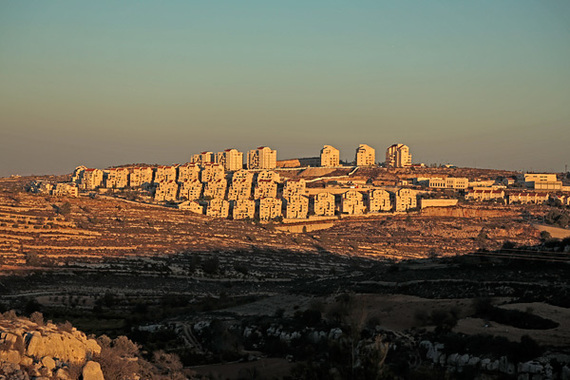
Across the West Bank, hilltops have sprouted tidy Lego-like communities...little boxes on a hillside. From a distance, you can easily distinguish Israeli developments (cookie-cutter, with uniform red-tile roofs, like these) from higgledy-piggledy Palestinian ones.
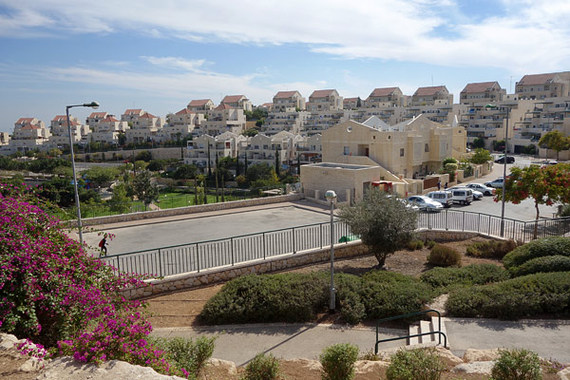
Settlements are planned communities -- beautifully landscaped and designed, offering the same modern conveniences and efficiency you'd expect in an American gated community.
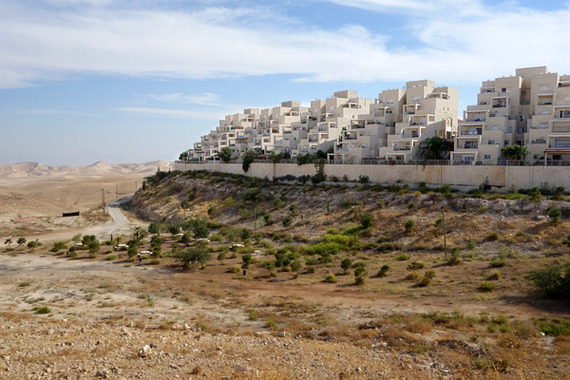
Over half a million Israeli Jews now live in settlements in the West Bank. These planned and secure communities come with all the comforts. And, with Israeli government subsidies for housing and transportation, young Jewish families can afford to live here and commute back to Israel proper. For many, it's a deal too good to refuse.
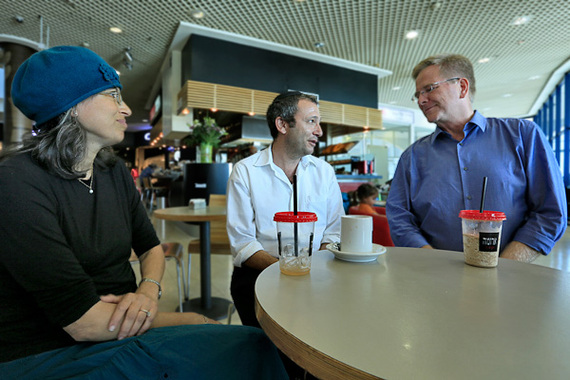
I enjoyed meeting and interviewing this smart couple who are raising 10 children in one of Israel's biggest and most modern settlements. Chatting in a café at their mall, they explained how the settlements make perfect sense to them. They acknowledged that the rest of the world may not like it (referring to the "rest of the world" as just another opinion). Describing their community as a "city" rather than a "settlement," they were clearly thankful to have a place to raise their children according to their values in a secure and affordable environment.
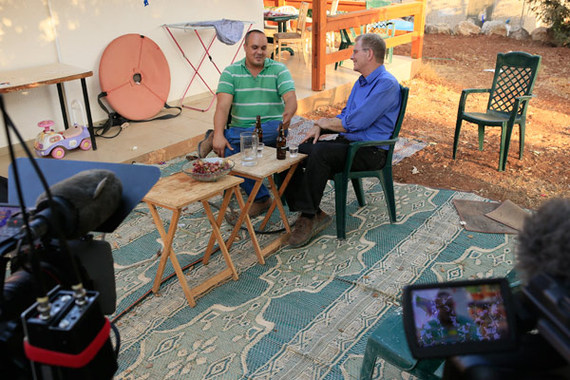
I enjoyed a beer and a chat with this resident of a simple and rustic settlement in the Jordan River Valley. He said he was here not as a Zionist staking Jewish claim to a land the Bible promised them, and not because attractive government subsidies made it economical, but because it was quiet and offered his young family a back-to-nature home with wonderful neighbors. "You never see the stars in Tel Aviv like we do here," he told me.
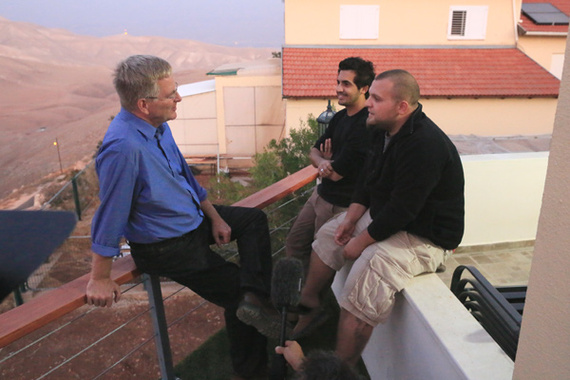
In another settlement, I met a 24-year-old man who just bought his house and was thrilled to invite us in. He and his buddy gave us an interview on their balcony with a vast and unpopulated view. They made the same claim I'd heard from other residents of these settlements: The land was going unused anyway, so why shouldn't industrious Israeli Jews develop it? They can pump in water from desalination plants and build a slick freeway infrastructure to provide a fine place for people to live. When I asked these young men if there's a good and peaceful future in this region, I was struck by how matter-of-factly they said, "Only if the Palestinians move east across the Jordan River and into the country of Jordan."
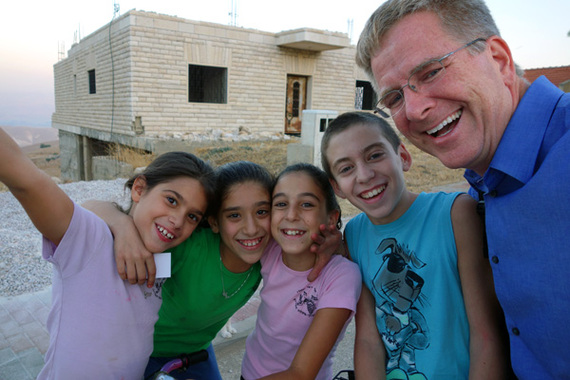
Spending time in Israeli settlements built in the last decade or so in the West Bank, on Leave It To Beaver streets under the red-tile roofs of cookie-cutter homes, I felt as if I were in California. Gangs of happy-go-lucky children on their bikes were eager to befriend me, and there was a relaxed vibe.
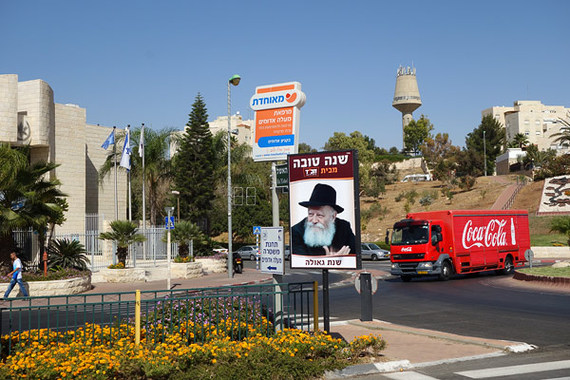
With a Palestinian car, we couldn't drive into this community. Walking to the gate of the settlement with our crew and a big camera, I asked, "Can we enter?" The guard said, "Why not? It's a free country." The guard next to him added, "God bless the American dollar." As we were leaving, he said, "Enjoy your economy." For some reason, I found myself pondering that odd farewell for the rest of the day.
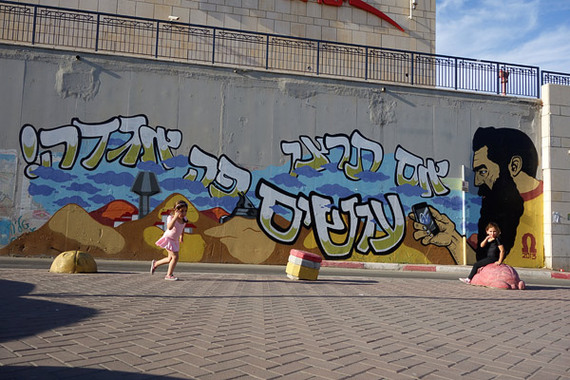
Just like Palestinians have their political art, Israelis do, too. But it's a little prettier. Decorating the parking lot of a settlement shopping mall, this mural shows the father of Zionism, Theodor Herzl (who, in the 19th century, was instrumental in establishing the notion that the Diaspora Jews scattered around the world since A.D. 70 are destined to have a Jewish homeland in the Holy Land with Jerusalem as its capital). The Hebrew here says, essentially, "Let the dream come true."